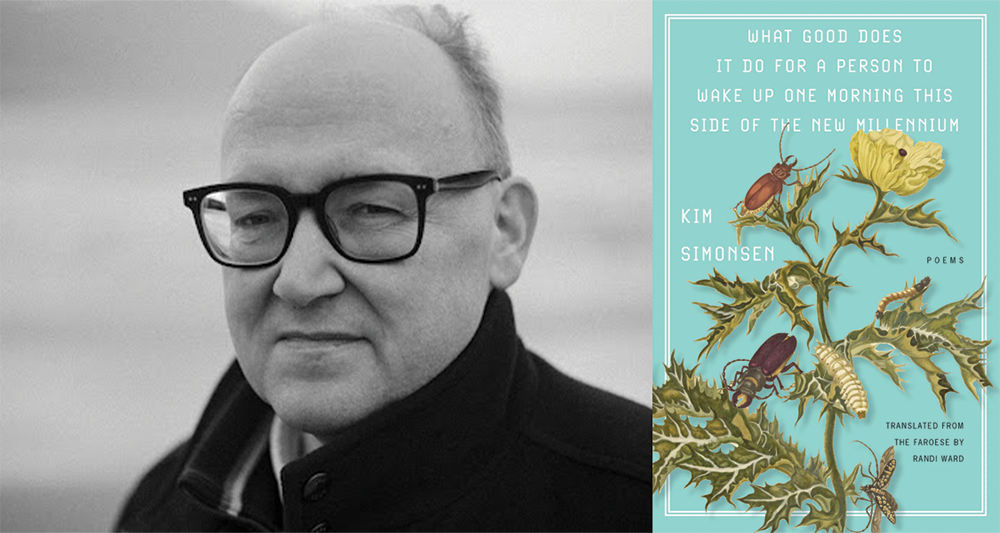What good does it do for a person to wake up one morning this side of the new millennium by Kim Simonsen, translated from the Faroese by Randi Ward, Deep Vellum, 2025
In seeking an entry into Faroese poetry, one should begin with Kim Simonsen, an award-winning writer and academic from the island of Eysturoy. Having been active for over two decades in conventional academia as well as in artistic circles, he is also the founder and managing editor of a Faroese press called Forlagið Eksil, and is the author of seven books as well as numerous academic papers. Hvat hjálpir einum menniskja at vakna ein morgun hesumegin hetta áratúsundið (What good does it do for a person to wake up one morning this side of the new millennium) won the M.A. Jacobsen Literature Award in 2014, and now, its translation by Randi Ward into English will be published by Deep Vellum in 2025. Written in free verse, the collection aspires to juxtapose the vast sweep of geology with the relative miniature of humanity, invoking the life cycles of organisms and landscapes whose timescales dwarf our own lives. Yet, the lyric centre of these poems is grief; the speaker has lost their loved one, and here measures their absence against the timelessness of eons. Divided into four parts, the book is also interspersed with illustrations from natural history texts such as Maria Sibylla Merian’s Metamorphosis Insectorum Surinamensium (1705), Leopoldo Caldani and Floriano Caldani’s Icones Anatomicae (1801-1813), and Frederik Ruysch’s Thesaurus anatomicus primus (1701), among others.



